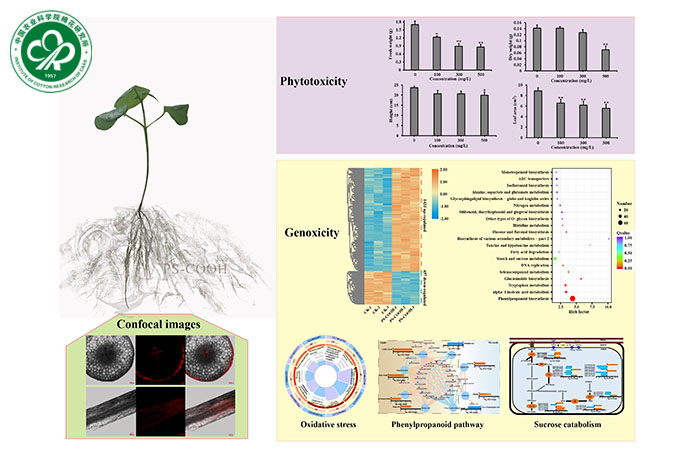- Location : Home» Newsroom
Uptake and effect of carboxyl-modified polystyrene microplastics on cotton plants
Recently, the research team led by Ma Xiongfeng from the Cotton Research Institute of the Chinese Academy of Agricultural Sciences, together with the innovation team for high-yield cotton breeding and the team led by Professor Zhang Ruoyu from Shihezi University, conducted a study on the harm of microplastics to cotton. They found that microplastics can be absorbed by cotton seedlings, significantly affecting their growth and altering their gene expression and metabolic pathways. The research results provide a theoretical basis for the toxicity evaluation and pollution remediation of microplastics on crops covered with plastic film. The relevant research results were published in the internationally renowned journal "Journal of Hazardous Materials" (IF=13.6) under the title "Uptake and effect of carboxyl modified polystyrene microplastics on cotton plants"
In this study,Microplastics (MPs) have emerged as a significant global environmental concern, particularly within agricultural soil systems. The extensive use of plastic film mulching in cotton cultivation has led to the alarming presence of MP pollution in cotton fields. However, the uptake and effects of MPs on the growth of cotton plants are poorly understood. In this study, we conducted a comprehensive analysis of hydroponically cultured cotton seedlings at the phenotypic, transcriptional, and metabolic levels after exposure to carboxyl-modified polystyrene microplastics (PS-COOH). Treatment with three concentrations of PS-COOH (100, 300, and 500 mg/L) resulted in notable growth inhibition of treated plants and exhibited a dose-dependent effect. And, PS-COOH can invade cotton roots and be absorbed through the intercellular spaces via apoplastic uptake, with accumulation commensurate with treatment duration. Transcriptomic analysis showed significant up-regulation of genes associated with antioxidant activity in response to 300 mg/L PS-COOH treatment, suggesting the induction of oxidative stress. In addition, the PS-COOH treatment activated the phenylpropanoid biosynthesis pathway, leading to lignin and flavonoid accumulation, and altered sucrose catabolism. These findings illustrate the absorption and effects of MPs on cotton seedlings and offer valuable insights into the potential toxicity of MPs to plants in soil mulched with plastic film.
This work was supported by the National Natural Science Foundation of China (32072114), the Natural Science Foundation of Henan (232300421116), and the Young Elite Scientists Sponsorship Program by Henan Association for Science and Technology (2022HYTP031). We thank Jianghua Wei (Wuhan MetWare Biotechnology Co., Ltd.) for providing valuable assistance in the metabolomics analyses.
https://doi.org/10.1016/j.jhazmat.2024.133581
